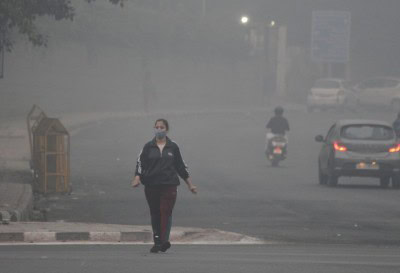By Aakanksha Khajuria
New Delhi, Nov 26 : As the national capital and the surrounding states reel under a air pollution crisis, Central Pollution Control Board (CPCB) Member Secretary Prashant Gargava on Thursday assured that the air quality will substantially improve in coming years and that the country is on a right track in curbing the menace.
His assurance comes at a time when the city, along with various other states, are caught in the chokehold of severe air pollution. Delhi’s air quality had taken a sharp turn for worse on Tuesday, after a brief lull from an early November spell of pollution largely caused by farm fires in Punjab and Haryana.
“In years to come, the air quality will substantially improve. I am optimistic. In the last four-five years, we have observed that the air quality is getting space in political agenda and public discussion. It is becoming a subject of concern and therefore there is demand for cleaner air and fast-track actions,” Gargava emphasised.
Another reason for believing that the air quality will improve, he said, is that in the last four-five years, there have been substantial scientific inputs and policy making frameworks.
“Earlier, actions were based on perceptions or limited data. Now more and more in-depth scientific analysis, data and knowledge are being looked at carefully by the policymakers. We are on the right track,” he added.
Gargava also said that the pollution control board is setting up a mechanism to track the progress of implementation of National Clean Air Programme (NCAP). The programme was launched last year by the Centre to reduce particulate matter pollution by 20-30 per cent in at least 102 cities by 2024.
“We are working on developing a dashboard which essentially will capture not only physical and financial progress but also change in air quality levels. It will be city-specific,” he said.
“We are also planning to put up a 10-city super network wherein much more in-depth measurement and scientific analysis will be done. We will more promote Atmanirbhar instrumentation so that our reliability on indigenous instruments also goes up.”
(Aakanksha Khajuria can be contacted at aakanksha.k@ians.in)
Disclaimer: This story is auto-generated from IANS service.

